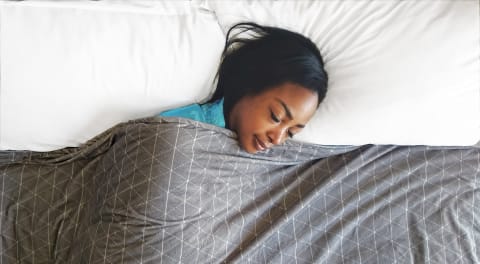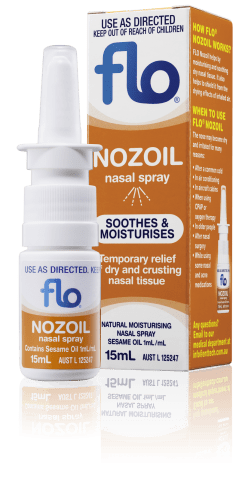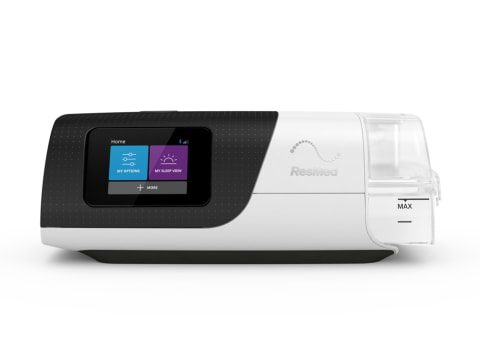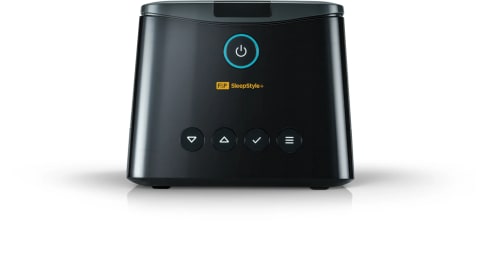CPAP Machine Reviews
How to choose a CPAP
Starting CPAP therapy can feel overwhelming, especially with so many machines and reviews out there. At Sove CPAP Clinic, we know that no two sleepers are the same. This guide is here to help you understand what really matters when reading CPAP machine reviews—and how to use that information alongside expert advice to choose a machine that’s just right for you.
Start by focusing on your personal sleep needs
Your journey starts with understanding your sleep needs. Some people have mild sleep apnea and just need gentle support. Others may need higher pressure or have more complex sleep conditions. Thinking about your unique situation will make the process of choosing a machine much easier.
Here are a few questions to consider:
- Do you breathe through your nose or mouth when sleeping?
- Are you a light sleeper or do you sleep deeply?
- Do you travel often?
- Do you experience dryness or congestion overnight?
- Have you tried CPAP before, or is this your first machine?
Once you reflect on those, make a simple checklist. These are the key features to look out for:
- Comfort settings: Some machines come with features like pressure relief (which makes exhaling easier) or ramp (which starts at a lower pressure and increases gradually). These are great if you’re still getting used to the sensation.
- Humidification: A built-in humidifier helps if you’re prone to a dry nose, mouth, or throat—especially useful during winter or if your bedroom is air-conditioned.
- Noise level: Most modern CPAP machines are quiet, but if you’re very sensitive to sound, check reviews that mention real-life noise experience.
- Size and portability: Travel CPAPs are great for those on the move, while full-size models might offer more comfort features.
- Ease of use: If you like tech, choose a device with an app and data tracking. Prefer simplicity? Go for something with one-button operation.
- Maintenance and durability: Consider how easy it is to clean, replace filters, and how long the machine is expected to last (usually around five years with proper care).
By setting your personal priorities, you’ll find that reviews start to make a lot more sense—and more importantly, you’ll be able to ignore the noise and focus on what truly matters to you.
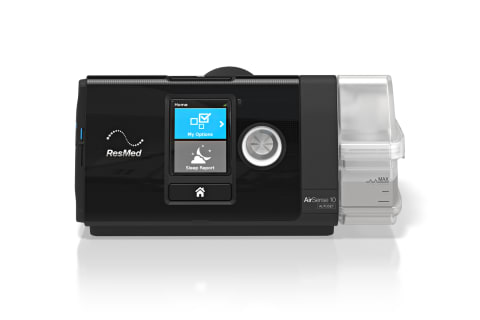 Further $50 Off with code "VALENTINES50"
ResMed AirSense 10 AutoSet 4G CPAP Machine
Further $50 Off with code "VALENTINES50"
ResMed AirSense 10 AutoSet 4G CPAP Machine
Learn how to interpret CPAP machine reviews
Not all reviews are created equal. Some are helpful, others can be confusing. The key is to look beyond the star ratings and understand what is being said and why.
Here’s how to read reviews like a pro:
- Look for patterns: If several people mention that a machine is whisper-quiet or has a tricky menu, it’s probably true. Consistency is key.
- Understand the reviewer’s situation: A beginner might love a simple machine, while an experienced user may want more advanced features. Consider how similar their situation is to yours.
- Check the review date and model: CPAP machines evolve. A complaint from 2020 might have been fixed in the 2023 or 2025 model.
- Don’t let one review make your decision: It’s easy to get scared off by a single bad experience. Instead, look at the big picture. Is the feedback balanced? Is it an issue you’d even care about?
- Remember, a CPAP machine is a medical device first. It’s there to improve your sleep and protect your health. Treat reviews as useful guidance—not the final word.
Use CPAP machine reviews alongside professional guidance
While reviews can help, nothing replaces personalised advice from a sleep professional.
At Sove CPAP Clinic, we make sure every machine recommendation is based on both your clinical needs and your lifestyle. That means we’ll factor in your sleep study results, pressure settings, comfort preferences, and more.
You’ll also benefit from:
CPAP Trials: We offer trial periods so you can try a machine at home and see how it works for you.
Ongoing adjustments: Need to tweak settings or try a different mask? We’re here to help at every step.
Expert support: We interpret data from your machine and make changes to improve your comfort and therapy results.
Combining your own research with our clinical experience gives you the best chance of long-term success.
Compare top-rated machines
Here’s a look at some of the most popular machines patients are loving in 2025:
A premium choice, this machine automatically adjusts pressure throughout the night for optimal comfort and effectiveness. It’s quiet, sleek, and offers app-based tracking for those who love data. With features like AutoRamp and Exhalation Relief, it’s ideal for new users and seasoned ones alike.
Fisher & Paykel SleepStyle+ Auto
Designed with simplicity and comfort in mind, the SleepStyle+ offers gentle pressure changes and a smart humidifier that keeps air warm and moist. It’s great for those who want an easy-to-use machine with a smooth therapy experience.
A solid all-rounder with a compact design, this model features intelligent pressure adjustments, a user-friendly screen, and a built-in humidifier. Many appreciate its quiet operation and easy maintenance.
Perfect for travel, the AirMini is ultra-compact but still delivers effective therapy. It’s compatible with specific masks and uses waterless humidification, making it light and convenient for life on the go.
These machines cover a wide range of needs, from tech-lovers to simplicity-seekers. And at Sove CPAP Clinic, we’re here to help you test, compare, and find your best match.
ALWAYS FOLLOW THE DIRECTIONS FOR USE. CPAP is used for Obstructive Sleep Apnoea treatment. When considering whether CPAP is right for you, speak to your doctor.
Frequently Asked Questions
Are CPAP machines really worth it?
Absolutely. CPAP machines are one of the most effective ways to treat sleep apnoea, especially moderate to severe cases. They work by keeping your airway open with a gentle flow of air, which helps prevent the breathing pauses that can disrupt your sleep and affect your health.
Many users say the benefits go far beyond just sleeping better. With consistent use, CPAP therapy can lead to:
- Reduced daytime sleepiness and fatigue
- Fewer headaches or brain fog
- Better mood and mental clarity
- A big drop in snoring (great for you and your partner!)
And perhaps most importantly, CPAP use is strongly linked to reduced risk of long-term health issues like heart disease, high blood pressure, and stroke. For some people, it’s even helped lower their blood pressure or improve diabetes management.
Will Medicare pay for a CPAP machine?
Medicare in Australia does not cover the cost of buying a CPAP machine outright. This can be surprising, especially since Medicare covers so many other medical services. However, CPAP devices are considered outpatient equipment, which typically falls outside standard Medicare benefits.
What is the 4-hour rule for CPAP?
The “4-hour rule” is a commonly used guideline in sleep medicine. It refers to using your CPAP machine for at least 4 hours per night on 70% of nights. This threshold is widely accepted as the minimum for therapy to be considered effective and beneficial—both in clinical studies and, in some countries, for insurance coverage.
Why 4 hours? Research shows that most of the benefits of CPAP—such as reduced sleepiness, improved blood pressure, and fewer apnoea events—start becoming noticeable around this usage point. It’s seen as a key benchmark that indicates a user is likely getting therapeutic value from their machine.
What should I know about CPAP machine ratings before choosing one?
CPAP ratings can be a helpful starting point, but there’s more to the story than just star counts. It’s important to look at the substance behind the rating—why a machine scored well or didn’t—and compare that against your specific needs.
High ratings usually reflect strong performance in key areas: comfort, noise level, reliability, ease of use, and features.
Remember that the highest-rated machine isn’t always the best one for you. Some people value tech and data tracking, others want simplicity. Ratings can point you in the right direction, but nothing beats trying a machine yourself or getting professional guidance to make sure it’s a great fit.
How many hours does a CPAP machine last?
Most CPAP machines are designed to last around 15,000 to 20,000 hours of use, which usually works out to about 5 years of nightly therapy. That’s based on using the machine for roughly 8 hours a night.
Some people find their machine continues to work well for 6, 7, or even 10 years—especially if they take good care of it. Others may need a replacement sooner if the machine is used heavily, exposed to dust or moisture, or if any component starts to wear out.
What is the best CPAP machine for severe Sleep Apnea?
If you have severe obstructive sleep apnea, you’ll need a machine that can deliver higher pressure ranges comfortably—and keep your airway consistently open even during deep sleep or REM stages, where apnea events are more common.
For most people with severe OSA, an Auto-adjusting CPAP (APAP) is a great option. These machines sense your breathing throughout the night and increase or decrease pressure as needed. This avoids blasting you with high pressure all night long and keeps therapy more comfortable.




